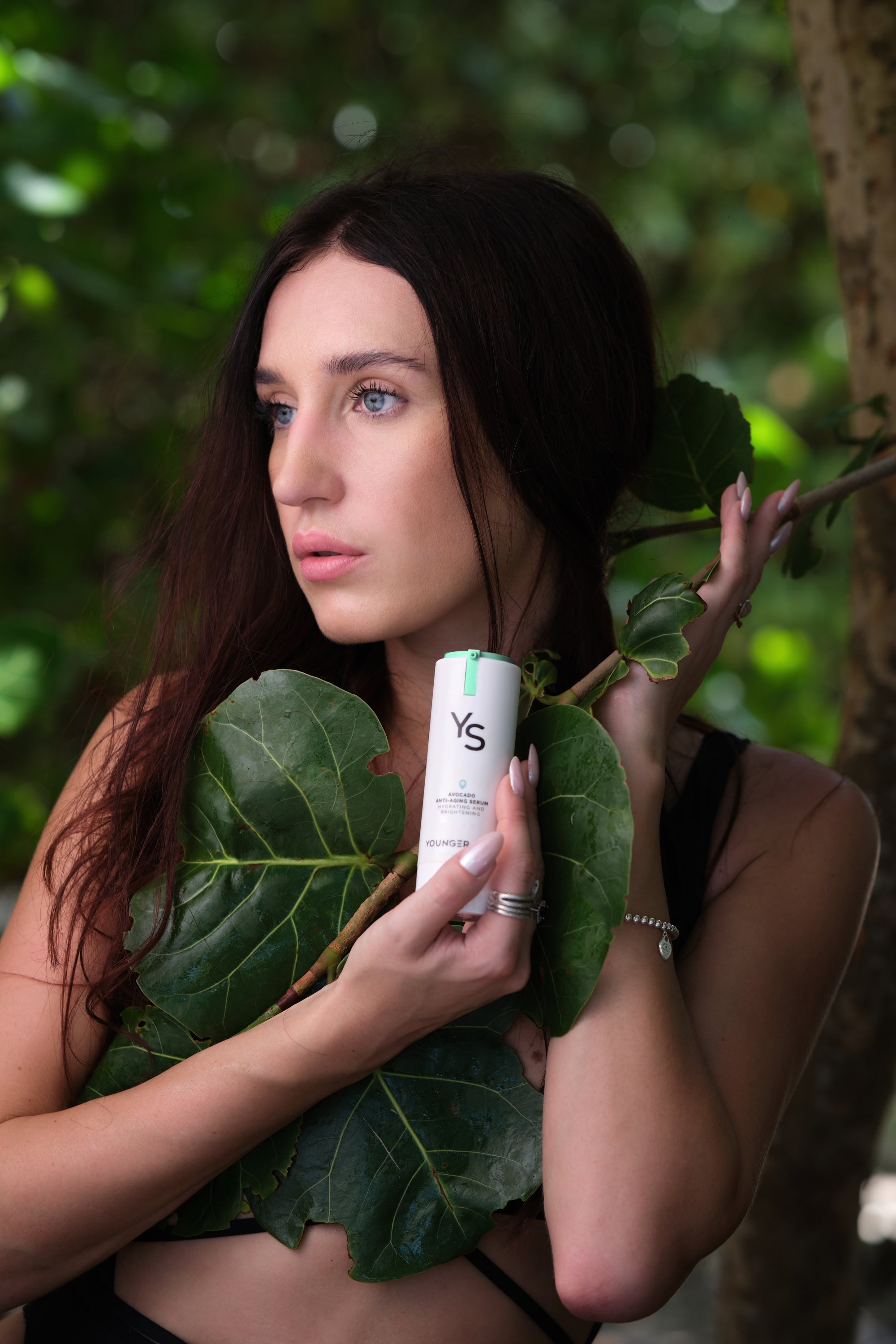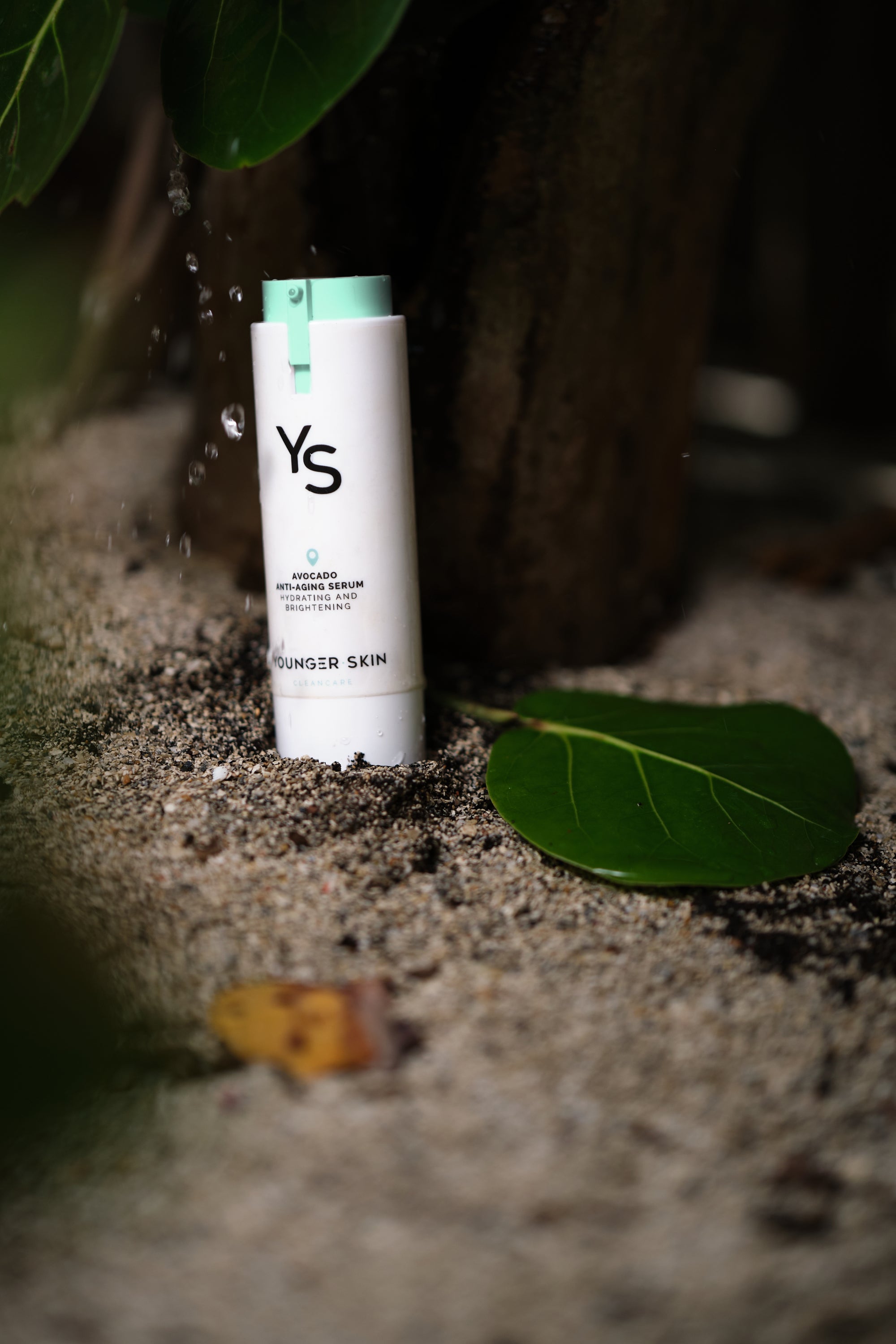FAQ's - Avocado Anti-Aging Serum Use
Collapsible content
Is there a specific time of day I should apply the Avocado Anti-Aging Serum?
For optimal results, it is recommended to incorporate the Avocado Anti-Aging Serum into your skincare routine both in the morning and at night. In the morning, apply the serum before applying sunscreen to help protect your skin from environmental factors. The combination of Vitamin C and Niacinamide can provide antioxidant benefits, helping to shield your skin from free radicals and promote a more even skin tone.
In the evening, use the serum before your moisturizer as part of your nighttime skincare routine. This allows the active ingredients, such as Hyaluronic Acid and organic avocado oil, to work overnight to hydrate and nourish your skin. Hyaluronic Acid helps to retain moisture, while organic avocado oil provides essential fatty acids that support skin health.
Should I apply the Avocado Anti-Aging Serum before or after moisturizer?
The general rule is to apply the serum before your moisturizer. This allows the active ingredients to penetrate the skin before sealing in hydration with a moisturizer.
Can I apply the Avocado Anti-Aging serum under makeup?
Yes, the serum can be used as a base under makeup. Allow it to absorb into the skin before applying other products.
How long does it take to see results from using the Avocado Anti-Aging Serum?
Results vary among individuals, but some may notice improvements in skin texture and hydration within a few weeks, while more significant changes may take several months.
FAQ's - All About Avocados
Collapsible content
What are the skincare benefits of using organic avocado oil?
Organic avocado oil is rich in nutrients such as vitamins A, E, and C, as well as omega-3 fatty acids and antioxidants. These components work together to nourish and hydrate the skin, promoting a healthy complexion. Vitamin E, in particular, helps protect the skin from environmental damage, while omega-3 fatty acids contribute to maintaining skin elasticity. The antioxidants present in avocado oil also assist in neutralizing free radicals, reducing the signs of aging and promoting a youthful appearance.
How does organic avocado oil benefit different skin types?
One of the notable advantages of organic avocado oil is its versatility in catering to various skin types. For individuals with dry or sensitive skin, the oil's emollient properties help moisturize and soothe, alleviating dryness and irritation. Meanwhile, for those with oily or acne-prone skin, avocado oil's non-comedogenic nature ensures it doesn't clog pores, while its antibacterial properties may help prevent acne breakouts. The oil's ability to balance and nourish the skin makes it suitable for a wide range of skincare routines.
What makes organic avocado oil a superior choice for natural skincare?
Choosing organic avocado oil for skincare is advantageous as it is free from synthetic pesticides and harmful chemicals. Organic cultivation ensures that the oil is derived from avocados grown without the use of synthetic fertilizers and pesticides, reducing the risk of skin irritation and adverse reactions. The absence of potentially harmful substances makes organic avocado oil a safe and environmentally friendly option for those seeking a natural approach to skincare. Additionally, the oil's nutrient-rich composition contributes to its effectiveness in promoting skin health without compromising on purity.
How does organic avocado oil contribute to skin repair and rejuvenation?
Organic avocado oil contains a high concentration of monounsaturated fats, which are essential for maintaining the skin's protective barrier. These fats play a crucial role in repairing damaged skin cells and promoting overall skin rejuvenation. The oil also contains sterolins, known for their ability to reduce the appearance of age spots, scars, and sun damage, contributing to a more even skin tone. Regular use of organic avocado oil can aid in the regeneration of skin cells, promoting a smoother and healthier complexion over time. Its deep penetration into the skin makes it an effective choice for addressing dryness, fine lines, and other signs of aging.
FAQ's - Scientifically Proven Active Ingredients
Collapsible content
What is hyaluronic acid, and what role does it play in skincare?
Hyaluronic acid is a naturally occurring substance in the human body that is renowned for its ability to retain water. In skincare, it is used as a hydrating agent due to its capacity to hold up to 1,000 times its weight in water. This makes it an excellent moisturizer, helping to keep the skin plump, hydrated, and youthful.
How does Hyaluronic Acid benefit different skin types, including oily and sensitive skin?
Hyaluronic acid is versatile and suitable for various skin types. For oily skin, it provides lightweight hydration without clogging pores, helping to balance moisture levels. Individuals with sensitive skin can benefit from its gentle nature, as it is generally well-tolerated and soothing. Additionally, Hyaluronic Acid's ability to enhance hydration can contribute to a healthier skin barrier, which is beneficial for all skin types.
Can hyaluronic acid be used alongside other skincare ingredients, and are there any precautions to consider?
Yes, Hyaluronic Acid is often compatible with other skincare ingredients. It can be seamlessly integrated into a skincare routine that includes antioxidants, retinoids, and sunscreens. However, when using products with Hyaluronic Acid, it's essential to apply them to damp skin and follow up with a moisturizer to seal in the hydration.
What is the significance of using both Low Molecular Weight (LMW) and High Molecular Weight (HMW) Hyaluronic Acid in skincare?
Integrating both LMW and HMW Hyaluronic Acid in your skincare routine offers a comprehensive approach to hydration. LMW-HA penetrates deeper, addressing internal moisture needs and reducing fine lines, while HMW-HA forms a protective barrier on the skin's surface, enhancing immediate hydration and maintaining skin integrity. This combination ensures multi-depth hydration for a plump, smooth, and youthful complexion.
What are the benefits of Vitamin C (Sodium Ascorbyl Phosphate) for the skin?
Sodium Ascorbyl Phosphate is a water-soluble derivative of Vitamin C, known for its antioxidant properties. It helps protect the skin from oxidative stress caused by free radicals, which can contribute to premature aging. Additionally, this form of Vitamin C has been shown to brighten the skin, reduce hyperpigmentation, and promote collagen synthesis, leading to improved skin texture and a more youthful appearance.
Is Vitamin C (Sodium Ascorbyl Phosphate) suitable for sensitive skin types?
Yes, Sodium Ascorbyl Phosphate is generally well-tolerated by individuals with sensitive skin. Unlike some other forms of Vitamin C that can be irritating, SAP tends to be more stable and less likely to cause irritation. It is a milder option for those with sensitive skin who still want to enjoy the benefits of Vitamin C, such as improved skin tone and protection against environmental damage.
What are the primary benefits of Niacinamide in a skincare serum?
Niacinamide, also known as Vitamin B3, offers a multitude of benefits for the skin. Niacinamide can help improve the skin's barrier function, leading to increased hydration and a reduction in moisture loss. It is known for its ability to address various skin concerns, including fine lines, wrinkles, and hyperpigmentation. Niacinamide is also recognized for its anti-inflammatory properties, making it suitable for sensitive and acne-prone skin. Additionally, it supports the overall health of the skin by promoting the production of ceramides and other essential lipids.
Can Niacinamide help with uneven skin tone and hyperpigmentation?
Yes, Niacinamide is effective in addressing uneven skin tone and hyperpigmentation. Regular use of a skincare serum containing Niacinamide can help fade dark spots, reduce redness, and even out the complexion. Niacinamide works by inhibiting the transfer of pigment within the skin, thereby preventing the formation of dark spots. This makes it a suitable ingredient for those looking to improve the appearance of sun damage, age spots, and other forms of hyperpigmentation. It's important to note that consistent and long-term use is key to seeing significant results.



